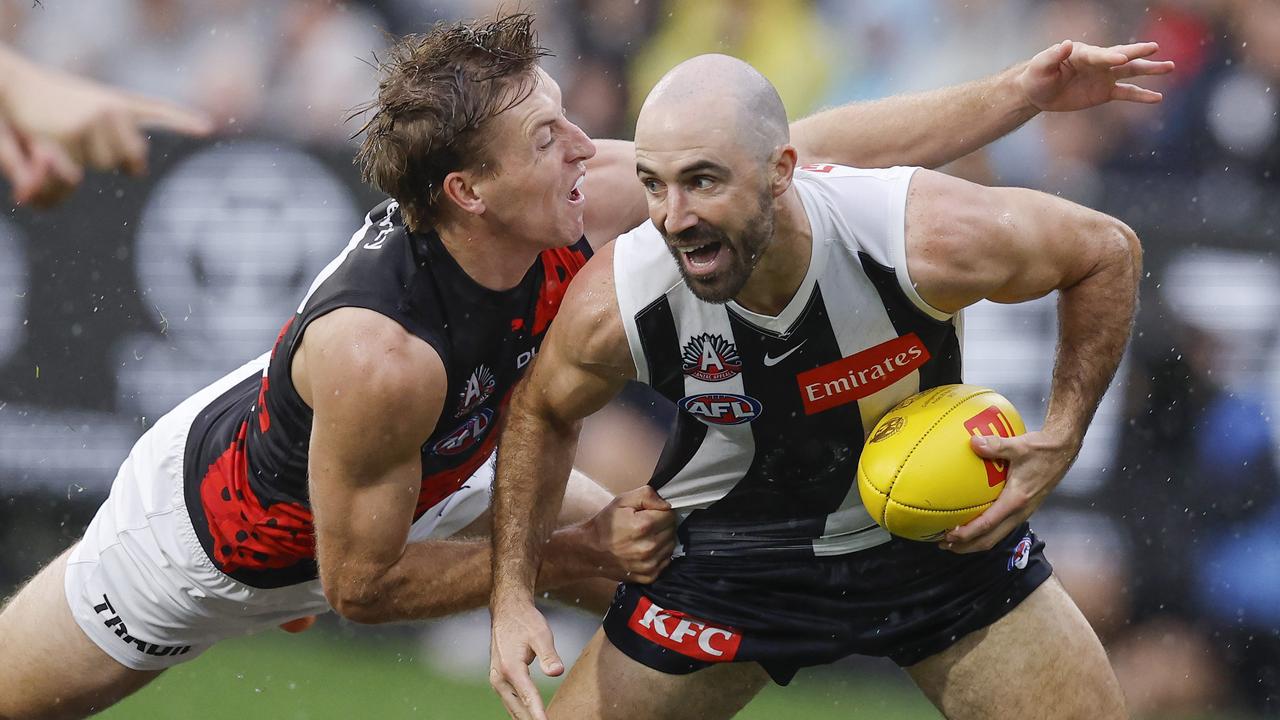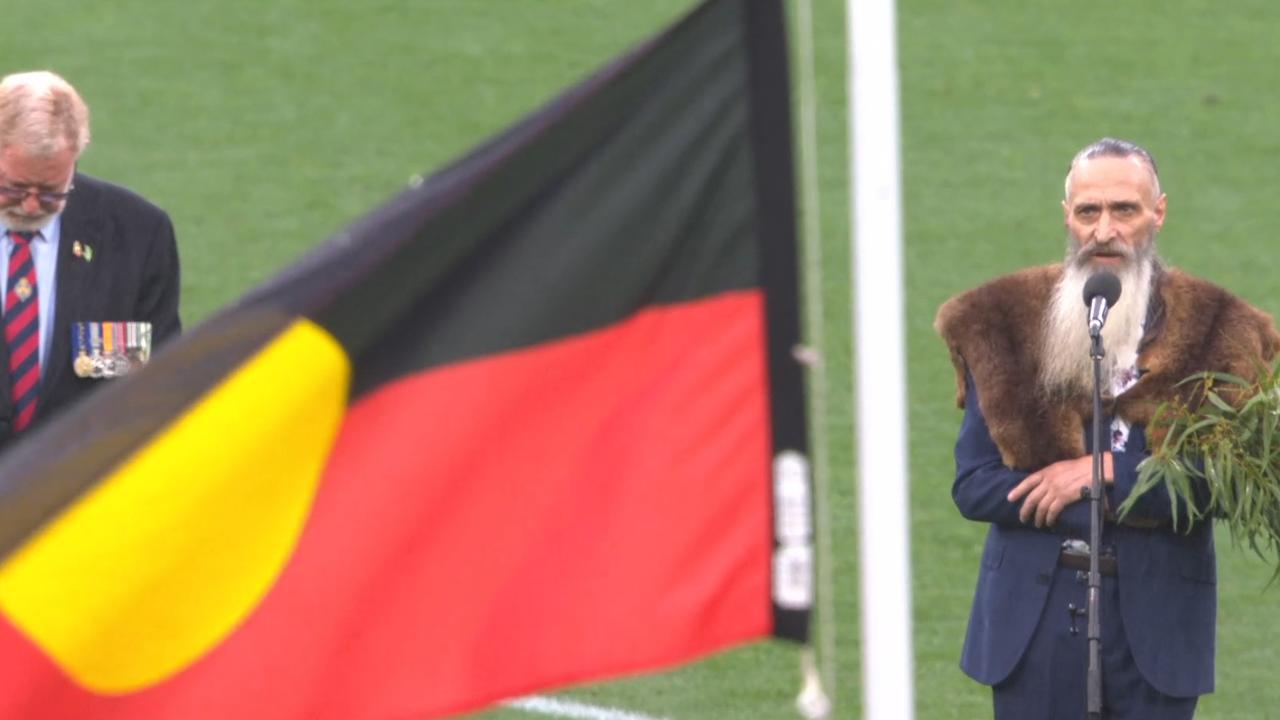AFL news 2022: Collingwood president Jeff Browne says the soft cap is jeopardising the mental health of players
AFL executives have had their salaries restored to pre-pandemic levels but the soft cap on club spending is hurting players in more ways than one, says Pies president Jeff Browne.
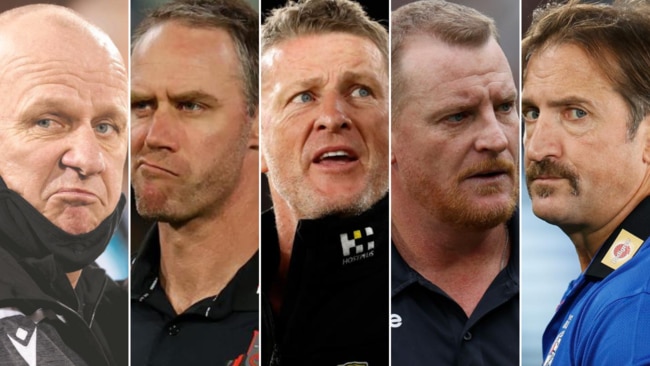
AFL News
Don't miss out on the headlines from AFL News. Followed categories will be added to My News.
The AFL is jeopardising the mental health of players through its contentious soft cap, according to Collingwood president Jeff Browne.
Several clubs are waging war with the league in their fight to free their cheque books after having more than $3 million wiped from their budgets since 2019.
Browne told News Corp that the spending limit “attacked the adequacy and safety of the workplace”.
AFL executives have had their salaries restored to pre-pandemic levels and the salary cap for players has risen to a record high this year.
League boss Gillon McLachlan said at last month’s season launch: “The AFL balance sheet is strong and debt free. Our clubs have reduced debt and almost all clubs were profitable last year”.
But the league still won’t budge on the soft cap, which Browne declared threatened clubs’ “primary legal obligations as responsible employers”.
Stream every match of every round of the 2022 Toyota AFL Premiership Season Live & Ad-Break Free In-Play on Kayo. New to Kayo? Try 14-Days Free Now >
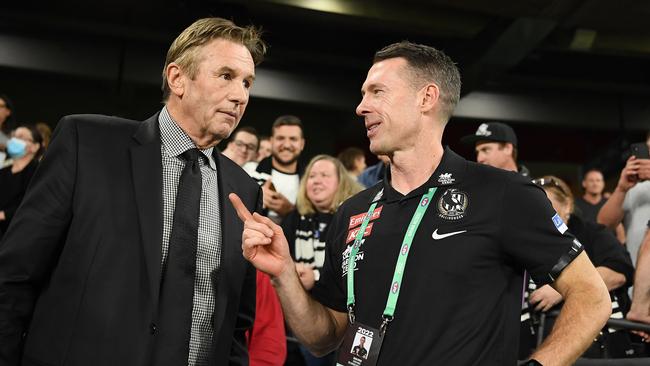
Browne said the player’s salary cap had helped level the playing field over 30 years – but the soft cap had played “no part” since it was introduced in 2015.
“The soft cap is an unreasonable restraint of a club’s ability to attract and retain the best football support people – medical, welfare, coaching and other important player related roles,” he told News Corp on Monday.
“(The soft cap) is arbitrary in its wildly varying limits and it puts clubs – and directors of every club, in the dangerous position of not being able to fulfil their primary legal obligations as responsible employers of young men and women, playing a highly demanding and injury prone sport.
“Add to that the increasing mental stresses of life in and after football and it all means we are being forced to fail badly in the critically important area of health and welfare, under risk of a heavy and progressively increasing fine.”
Browne is leading the fight publicly and has found some powerful allies.
Western Bulldogs premiership coach Luke Beveridge said it was a “huge issue” and one that cost several “good people” their jobs in football.
“The HR (human resources) and wellbeing component has become a real struggle,” Beveridge said.
“It’s a shame nothing’s been done yet.”
Sydney president Andrew Pridham wants at least another $500,000 added.
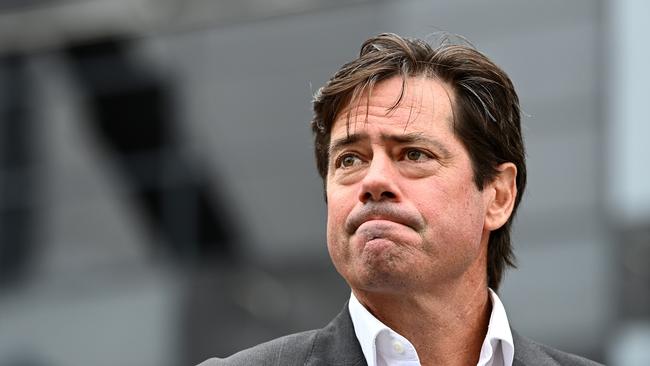
The soft cap peaked at $9.7 million in 2019 (pre-Covid) but is set at just $6.5 million this year.
West Coast boss Trevor Nisbett wants it restored to $9.7 million.“We need to be able to pay our staff the same sort of money that other industries are offering. Unfortunately we can’t do that at the moment,” Nisbett said.
Several clubs have pleaded with the AFL for salaries paid to mental health experts to fall outside the cap.
In 2019, one Victorian club wanted to make its part-time psychiatrist full-time but couldn’t because of the AFL’s spending limit.
“The problem will not go away but so far the AFL has a tin ear on this, even after four prominent clubs have now publicly expressed their dismay at the failure of the AFL to urgently address and resolve this,” Browne said.
“It’s disappointing and frankly staggering, that we should be having this debate.”
Players set for big pay rise but where to for coaches?
Players have struck gold with this year’s salary cap reverting to a fixed percentage of the game’s total revenue as projected back in 2017, long before the pandemic had even started.
They signed up for 28 per cent of the total pie at the last Collective Bargaining Agreement, back when football had been expected to generate $6.574 billion from 2017-2022.

This year’s Total Player Payments forecasted at $243.7 million plus Additional Service Agreements of about $1.2 million per club.
The TPP was slashed to just $170 million in 2020 and $217.4 million last year as the AFL drained more than $80 million out of the salary cap. But the AFL only negotiated pay cuts for those two seasons.
Players will bank a 6.14 per cent pay rise when comparing 2022 with 2019 — the last ‘normal’ season — making it their richest in history.
That increase is consistent with both AFL and club executives and there is widespread support for paying the stars of the show their full clip given the enormous sacrifices they have made during Covid.
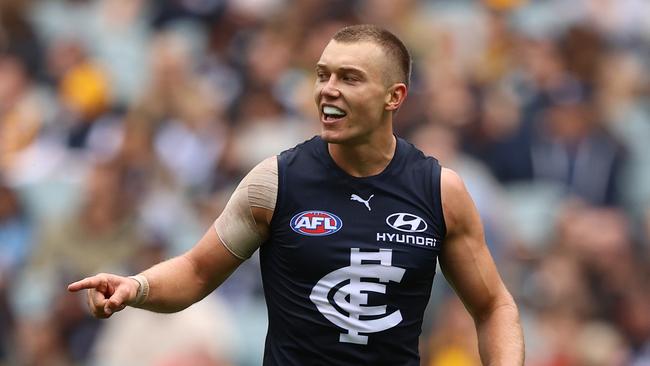
But the AFL’s contentious soft cap remains shrunk by more than 30 per cent, with football departments – the lifeblood of every club – sharing $6.5 million each.
Football department salaries including every dollar a senior coach is paid are counted in the soft cap. Some coaches remain on as little as 70 per cent of their pre-pandemic packet.
The industry has also lost countless good football people due to the enforced cuts.
The streamlined survivors are now at risk of burning out.
Former Collingwood coach Nathan Buckley said he had been burdened with 130-140 per cent of his pre-Covid workload early last season.
It’s understood AFL boss Gillon McLachlan is open to allowing 50 per cent of a senior coach’s wage to sit outside the soft cap.
The AFL and AFLPA will soon hold high-level talks to map out the next CBA, which is likely to run from 2023-2024.
Both parties are open to tying the men’s and AFLW contracts together in what would be a first for the sport.
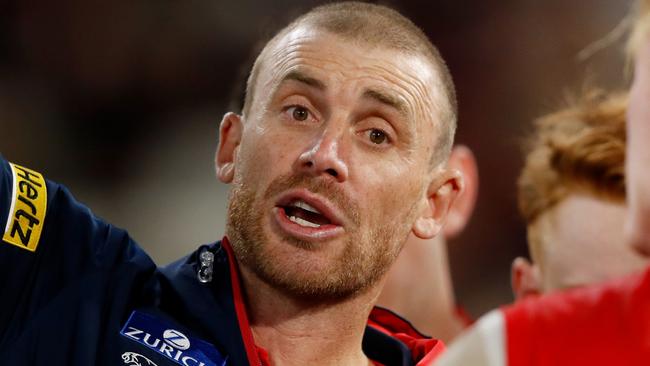
But they also share an urgency to start the next AFLW season in August, which could create deadline pressure that sees the two CBAs remain independent.
While some clubs think the AFL could miss that deadline and still bundle the CBAs together by back-paying players as soon as the agreement is signed, that scenario is unlikely to work.
Asked if male players should take a pay cut to subsidise the growth of AFLW, Fremantle captain Nat Fyfe said: “That’s not a question I’m willing to answer”.
The AFLPA is likely to point to the 72 per cent of the sport’s revenue outside of the men’s salary cap that could be used to grow the women’s game.
The league has splashed cash on failed ventures such as AFLX and playing in Shanghai, funds which could be helping grow AFLW.
The AFLW season is expected to swell annually before going professional in 2026, when players will be allowed to train full-time and all 18 clubs will play each other.



